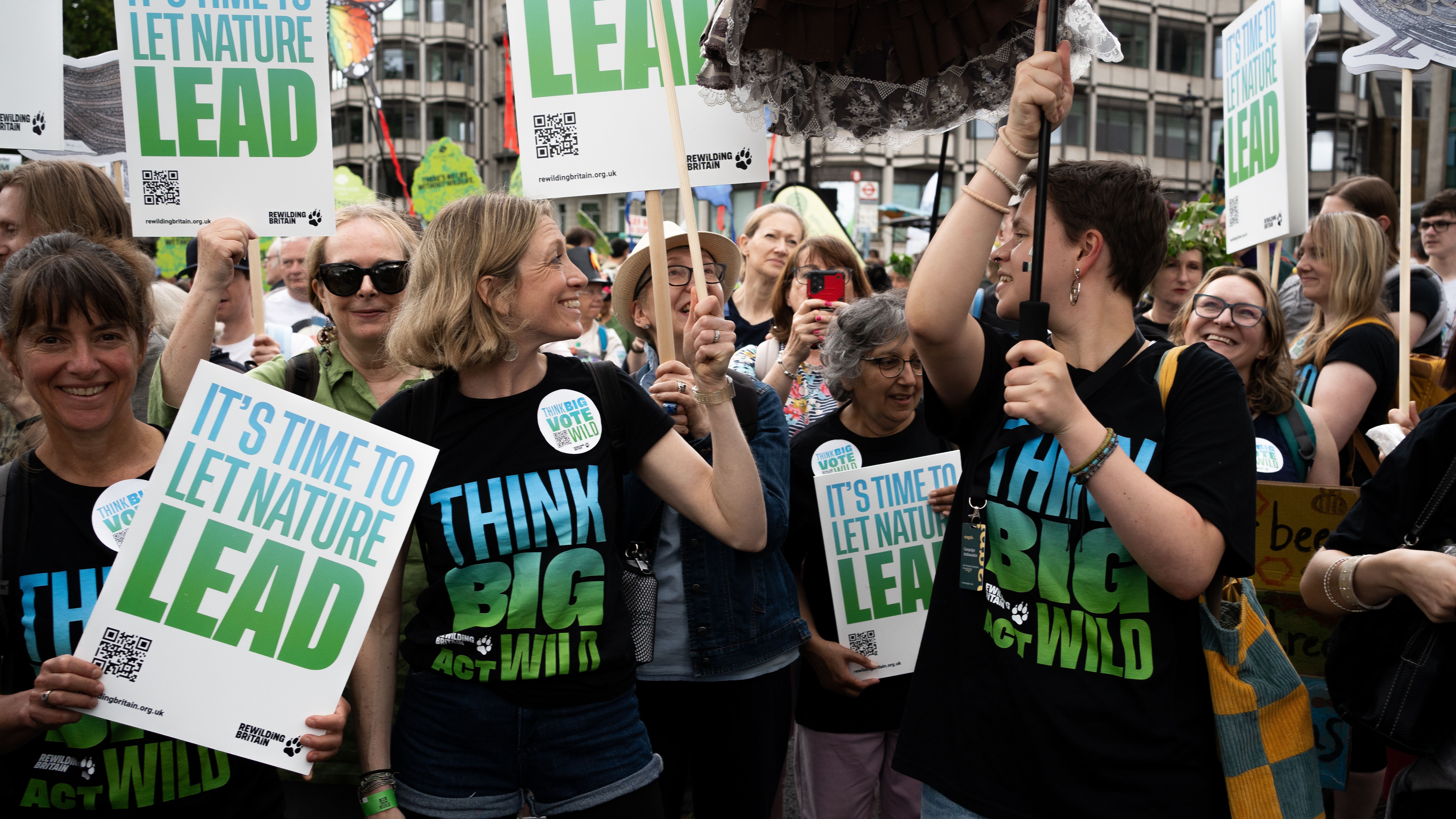This year has shown that more and more people want to be a part of rewilding and understand the role it must play in tackling the climate and biodiversity crises. More than four in five Britons now support rewilding, and 77% believe the government should be doing more to reverse the decline of nature in Britain, according to polling we undertook with YouGov this year.
Rewilding cannot flourish without bringing people along with it – and 2025 promises a range of exciting species being reintroduced to Britain, from eagles to tauros.
Rewilding is the large-scale restoration of nature to the point where it can take care of itself. It not only offers hope for tackling the nature and climate crises, but has the potential to create a cascade of social and economic benefits for people and communities. People – pioneers, communities, activists, ecologists – are at the heart of rewilding, as these moments from 2024 (alongside hundreds of others) show.
- The comeback kids: The 5 ‘lost’ wildlife species returning from extinction to the UK
- ‘Nature is slowly healing’: How rewilding is bringing Britain’s extinct species back from the dead
The Restore Nature Now march was the largest ever rally for nature in the UK, with over 60,000 people in attendance. And this was the year that all political parties committed to declaring Scotland a Rewilding Nation.
The call for change is louder than ever before, and the movement is growing with each passing year. This year we hit an amazing milestone of welcoming over 1,000 rewilding projects to our Rewilding Network, a community of rewilders based across Britain who are actively rewilding land and sea in innovative and exciting ways. When another project is born, expanded or linked with their neighbour, the pace of rewilding grows and more land and sea is recovered for nature.
More people rewilding means more rewilding jobs being created, strengthening local economies and opening up more employment opportunities for rural communities. A survey to the Rewilding Network showed that, in Scotland, full-time equivalent jobs across 13 major rewilding projects increased from 24 before rewilding began to 123, an increase of over 400%. In England and Wales, full time equivalent jobs across 50 sites increased from 162 to 312, an increase of 93%. The variety of jobs has boomed too, and includes nature-based hospitality and tourism, estate management, ecology, environmental monitoring, rewilding interventions, recreation, and education.





